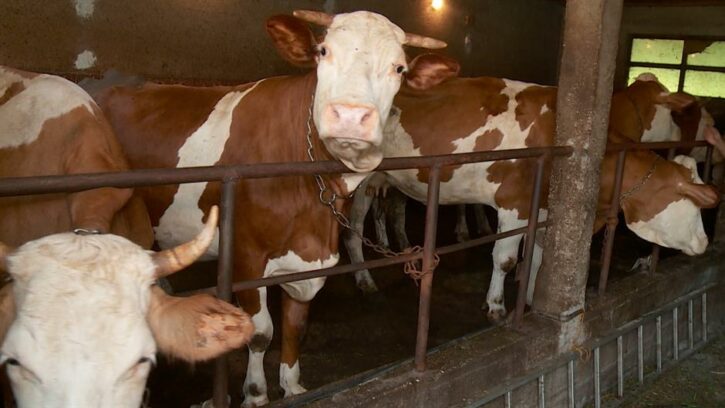
Although dairy producers in Bosnia are thrilled over the news that they will be able to sell their products in the EU, this will not solve the problems they face.
To Eastern Sarajevo farmer Radomir Maunaga the European Commission approval of Bosnian dairy imports means nothing.
He is breeding cows and receiving subsidies worth BAM 300 per cow and BAM 240 per calf. He does not produce milk anymore because of the low subsidies and small and irregular returns.
Even if the producers in the Bosnian Serb half of the country, Republika Srpska, would get 30 Pfenning for the highest class of milk, it would still be difficult to produce the class of milk that class of milk, as it requires having mattresses for the cows and high-class hygiene, he said.
But some 1,000 farmers cooperating with the ‘Padjeni’ company are still producing milk and hoping their products will soon be available on the EU market.
“We can enter (the market) with our traditional programme,” said the director of Padjeni, Nenad Vukoje, adding that the EC approval was “the best news” farmers and producers received lately.
But while some are trying to export, others are still struggling to find a place in the domestic market, where only in 2018 the import exceeded the export by nearly 34 million BAM. Most of the diary products that were exported thtoughout the year, nearly a third, went to Montenegro, while most of the imports came from Germany.
“Bosnia and Herzegovina is one of the rare countries outside of the EU allowed to export dairy products from the A, B and C categories,” said Mirko Sarovic, the Minister for Foreign Trade and Economic Relations.
Bosnia imported four times more products from Croatia than it exported to that country.
The manager of the Milkos factory, which was one of the first ones to get an export licence, said those are not good results.
“We have not met our goals,” said Milos manager Adin Fakic. “We used to export some five million BAM worth of products and now it’s just one million.”
Employers in Bosnia’s dairy industry said they are not competitive, as they do not receive any funds from the EU, as they can’t access favorable loans or subsidies for the fuel they use and as they have not been freed from paying excise taxes.
They said the true challenge still lies ahead, when EU countries get approval to import into Bosnia without paying customs.




